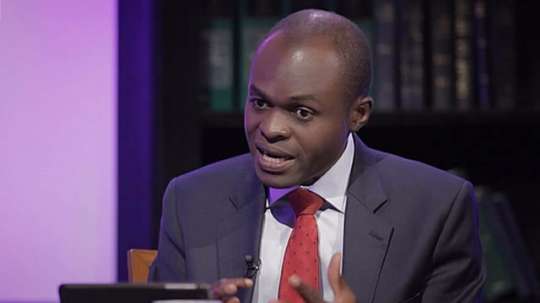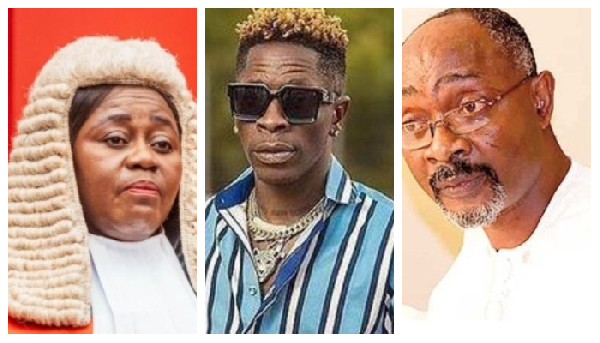Chief Justice's ECOWAS court battle divides legal minds - MyJoyOnline
The unprecedented decision by suspended Chief Justice Gertrude Torkornoo to challenge her removal proceedings at the ECOWAS Court of Justice has sharply divided legal opinion in Ghana.
This has sparked a heated debate over judicial jurisdiction, national sovereignty, and procedural propriety.
While some legal experts contend that the move is misguided and unlikely to succeed, others firmly assert the regional court's right to hear the case, even amid ongoing domestic legal battles.
The Chief Justice, suspended by President John Dramani Mahama under Article 146 of the 1992 Constitution following three separate removal petitions, filed her case in Abuja, Nigeria, arguing that her human rights have been violated by her suspension and the processes initiated against her.
This marks the first time in Ghana's history that a sitting Chief Justice has faced such a process, making every legal manoeuvre a subject of intense scrutiny.

Leading the charge of scepticism is Kwaku Ansa-Asare, former Director of the Ghana School of Law. Ansa-Asare views the Chief Justice's move as a "misguided attempt to override Ghana’s well-established legal processes", arguing that Ghana's legal framework is distinct and sovereign.
"Our procedures are firmly embedded in the High Court rules and the Evidence Act of 1975," Ansa-Asare stated, emphasising the deeply entrenched nature of Ghana's procedural laws.
He contends that the ECOWAS Court does not possess a "sub-regional procedure that we are violating", suggesting there's no basis for the ECOWAS Court to intervene on procedural grounds specific to Ghanaian law.
Ansa-Asare is convinced that the Chief Justice's gamble will not yield the desired outcome. "Taking the matter out of the purview of our courts to the ECOWAS Court is not going to achieve the desired purpose. It will be defeated,” he predicted.
He did not hold back in his assessment of the Chief Justice's strategy, lamenting that she is "shooting herself in the foot" and "worsening her own predicament through missteps."
He added, emotionally, “She’s making her bed and lying in it. It saddens and pains me that she is adding insult to injury.”
Ansa-Asare concluded that while legal battles are an inherent part of due process, self-inflicted procedural blunders, especially by someone of her legal standing, are difficult to justify.

Conversely, private legal practitioner Martin Kpebu offers a robust counter-argument, asserting the ECOWAS Court of Justice's legitimate jurisdiction to hear the Chief Justice's case, regardless of ongoing domestic proceedings in Ghana.
Speaking on TV3’s KeyPoints on July 12, Kpebu directly addressed the confusion surrounding whether local court cases could preclude access to regional human rights courts.
"Under ECOWAS jurisprudence, having a case before a domestic court is not a bar to filing before the ECOWAS Court," Kpebu clarified.
He backed his claim by citing established precedents from the ECOWAS Court's own jurisprudence, specifically referencing cases such as Registered Trustees of HEDA Resource Centre vs Republic of Nigeria (2021) and SERAP vs Nigeria (2016).
In these and numerous other rulings, the ECOWAS Court has consistently maintained that citizens of ECOWAS member states can seek regional remedies for alleged human rights violations even while parallel cases are ongoing within their domestic legal systems, unless the matter is before another international court, like the African Court on Human and Peoples' Rights.
"Unless a case is being heard by another international court like the African Court, it is not a problem. Lawyers, journalists, everyone needs to understand this clearly,” Kpebu emphasised, advocating for greater public and professional awareness of the regional human rights protection framework.
He further encouraged widespread research into these pivotal rulings to foster a clearer understanding, particularly given the politically sensitive nature of Chief Justice Torkornoo's case.
The Chief Justice's legal challenges within Ghana have already faced setbacks.
While she has filed cases before both the Supreme Court and the High Court contesting her suspension and the constitutionality of the removal process, her initial injunction application against the Committee of Inquiry was dismissed by the Supreme Court on grounds of admissibility in May 2025.
This means the substantive constitutional arguments are still to be fully heard domestically.
The ECOWAS Court of Justice, established in 1991, has a broad mandate but gained significant prominence with the adoption of its 2005 Protocol, which allowed individuals direct access to the court for human rights violations.
It has since delivered hundreds of judgements against member states, often awarding damages and ordering states to rectify violations.
However, enforcement of its judgements remains a challenge, with compliance varying among member states.
For instance, Ghana itself has a mixed record of compliance with ECOWAS Court judgements, although it has generally shown a willingness to engage with the court's processes.
The ongoing legal saga highlights the intricate balance between national sovereignty, judicial independence, and regional human rights mechanisms.
As Ghana navigates this unprecedented constitutional challenge, the arguments presented by Ansa-Asare and Kpebu illuminate the complexities and differing interpretations of legal pathways available to high-ranking state officials in such predicaments.
The ECOWAS Court's eventual decision on the admissibility and merits of Chief Justice Torkornoo's case will undoubtedly set a significant precedent for judicial accountability and human rights jurisprudence across West Africa.
The Views, Comments, Opinions, Contributions and Statements made by Readers and Contributors on this platform do not necessarily represent the views or policy of Multimedia Group Limited.
The Views, Comments, Opinions, Contributions and Statements made by Readers and Contributors on this platform do not necessarily represent the views or policy of Multimedia Group Limited.
You may also like...
Diddy's Legal Troubles & Racketeering Trial

Music mogul Sean 'Diddy' Combs was acquitted of sex trafficking and racketeering charges but convicted on transportation...
Thomas Partey Faces Rape & Sexual Assault Charges

Former Arsenal midfielder Thomas Partey has been formally charged with multiple counts of rape and sexual assault by UK ...
Nigeria Universities Changes Admission Policies

JAMB has clarified its admission policies, rectifying a student's status, reiterating the necessity of its Central Admis...
Ghana's Economic Reforms & Gold Sector Initiatives

Ghana is undertaking a comprehensive economic overhaul with President John Dramani Mahama's 24-Hour Economy and Accelera...
WAFCON 2024 African Women's Football Tournament

The 2024 Women's Africa Cup of Nations opened with thrilling matches, seeing Nigeria's Super Falcons secure a dominant 3...
Emergence & Dynamics of Nigeria's ADC Coalition

A new opposition coalition, led by the African Democratic Congress (ADC), is emerging to challenge President Bola Ahmed ...
Demise of Olubadan of Ibadanland
Oba Owolabi Olakulehin, the 43rd Olubadan of Ibadanland, has died at 90, concluding a life of distinguished service in t...
Death of Nigerian Goalkeeping Legend Peter Rufai

Nigerian football mourns the death of legendary Super Eagles goalkeeper Peter Rufai, who passed away at 61. Known as 'Do...




